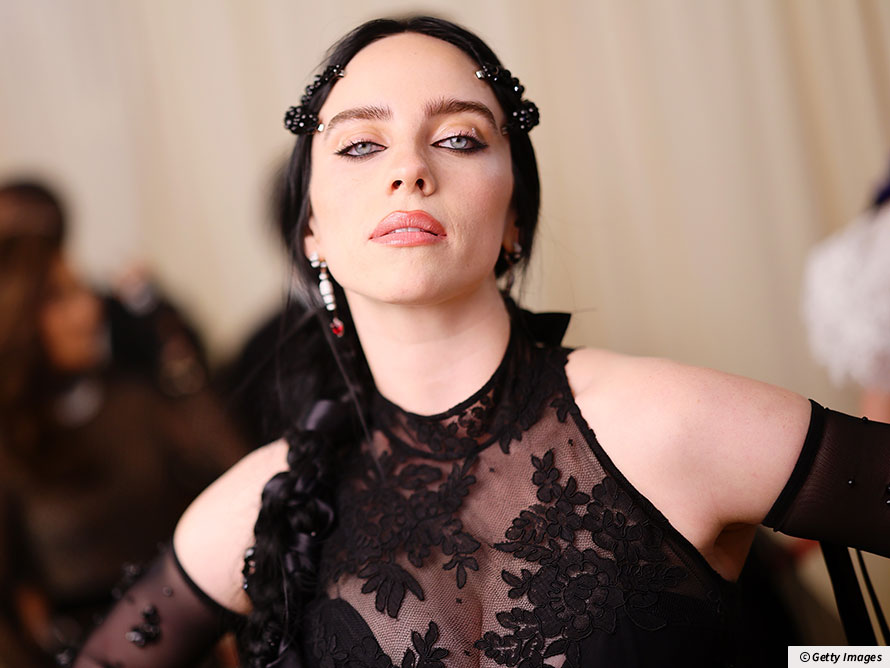Has fan culture got out of hand? Billie Eilish has lashed out at fans for criticising her new personal style. Some think it just part of being a celebrity. Others say we need to look more critically at fandom.
Singer’s plea to critics: ‘Let women exist’
 Deserted: Eilish says that she lost 100,000 followers the first time she shared a feminine outfit.
Deserted: Eilish says that she lost 100,000 followers the first time she shared a feminine outfit. Glossary
Fanfiction - Stories about existing characters or real celebrities, written by fans.
Swathes - Large areas.
Pariah - An outcast.
PR - Public Relations — the practice of managing how others see a brand or person.
Fascist - Following fascism, a set of ideologies that advocates dictatorial power, political violence, suppression of opposition, traditional gender roles, and official racism.
Apathy - Lack of interest or enthusiasm.
